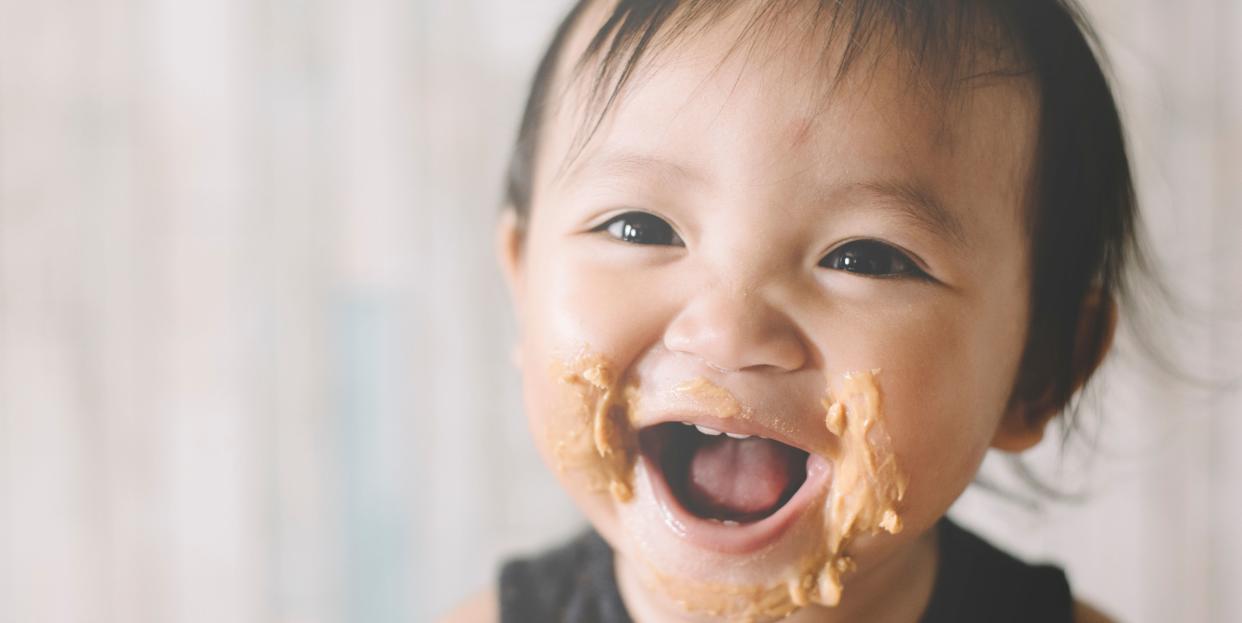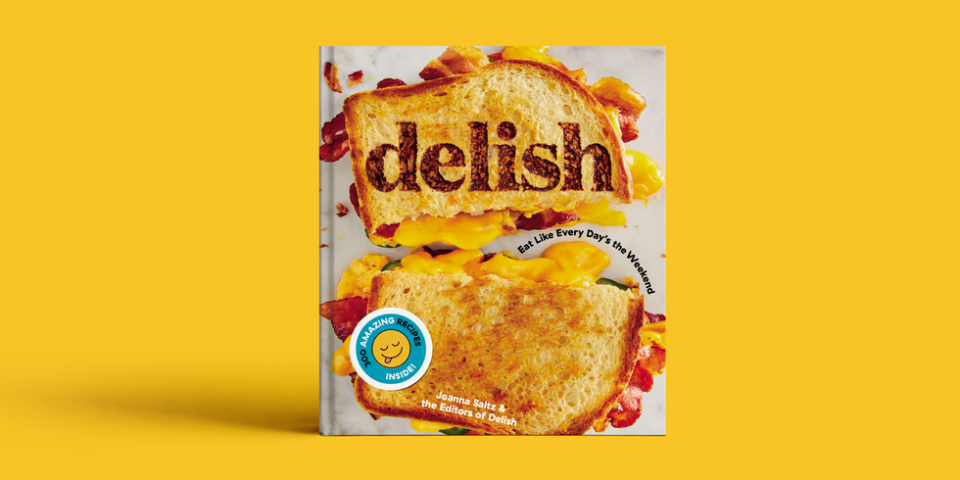Parents: Pediatricians Say You're Probably Giving Your Kids Too Many Food Pouches

Compared to chips and cookies, pre-pureed fruits and veggies sound like a slam dunk for parents looking to feed their kids more produce. However, as a recent The New York Times report has brought to light, the convenient squeeze pouches found in everyone's diaper bags might also teach children unhealthy food habits when they're used as a crutch instead of a treat.
Baby food pouches now make up 25% of the U.S. baby food market, according Nielsen's Total Food View as reported by The Times. The popular snacks often feature trendy ingredients such as Greek yogurt and kale and can effectively fool picky eaters into getting much-needed vitamins and nutrients.
However, they're not a replacement for regular fruits and veggies, according to Dr. Robin Jacobson, a pediatrician at NYU Langone Pediatric Associates at Irving Place, part of Hassenfeld Children’s Hospital.
"Developmentally, kids aren't learning how to eat different textures and how to chew foods," she tells GoodHousekeeping.com. "Instead of them eating peas and carrots, it’s all mushed up in the pouch and they’re just sucking it up. They don’t learn to eat a diet. They learn to drink a diet."
The convenience of passing out pouches contributes to another problem too: Dr. Jacobson says they can easily become a way to soothe kids, even when children don't really feel hungry and could probably use some one-on-one time instead.
One of the pouches' main benefits – the ability to get squash and broccoli past finicky toddlers - isn't ultimately doing you any favors in the long run either.
"You're hiding vegetables that some kids this age won’t eat, so they’re getting nutrients without even realizing it, but the bad thing is that they’re not acquiring the taste of kale or spinach," Dr. Jacobson explains. "Their palettes themselves are not diverse and they aren't able to know what foods they like or don’t like."
That's to say that while your kids might get a few peas in each pouch now, when you serve them up actual peas at dinner, they're not any more likely to want to eat them.
Jaclyn London, MS, RD, CDN, the Good Housekeeping Institute Nutrition Director, agrees that the predominantly sweet taste of pouches primes kids for trouble eating plain veggies later on.
"Pouches are better as more of an 'in case of emergency' snack, but as an everyday thing - the predominant way they’re used - the utility isn’t there," she says. Her main concern is that almost all pouches list "fruit juice concentrate" or "fruit puree" as the first ingredient.
"Fruit juice purees are a concentrated form of fruit sugar, which aren’t harmful for you, but the taste that they evoke in infants and toddlers is sweeter than a blended version of the fruit itself," she explains. "It’s also used as a sweetening agent despite the fact that it doesn’t fall under the FDA definition of 'added sugar.'"
Besides developing kids' sweet-tooths, pureeing the produce also reduces the amount of fiber they're getting compared to eating the fruits and veggies whole or even blending or mashing at home. "It’s not providing the same immune-protecting, gut-health benefitting attributes that a real, whole fruit or veggie would," London adds.
So, what's a busy parent to do?
We know going totally pouch-less isn't realistic for a lot of parents, and no one is saying to give them up completely. But if you think your kids would benefit from a break (no judgement - our own editors use them all the time!), try to stick to no more than one a day, Dr. Jacobson advises. Try using them only during the busiest times of your routine, and maybe even empty the pouch into a bowl with a spoon.
Also, try establishing a regular family meal time, where children who are old enough can eat exactly what you're eating, just in smaller pieces. This way they can get used to different textures and tastes.
Looking for some healthy snack ideas? Try these four healthy suggestions (for kids and adults!) from London:
You can also check the American Academy of Pediatrics guidelines and consult with your pediatrician for more advice on feeding kids.
The Bottom Line: While baby food pouches undoubtedly beat out other unhealthier snack options, throwing an apple in your kid's backpack instead of an applesauce pouch wins out almost every time. Whole fruit and veggies supply more fiber and less concentrated sugar. Plus they get kids used to eating new foods and flavors. However, if you're in a jam, stick to one pouch a day - tops.

BUY NOW Delish Cookbook, $30, amazon.com
You Might Also Like

